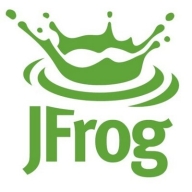

MongoDB Atlas and JFrog DevOps Cloud Platform compete within the cloud and DevOps landscape. JFrog DevOps Cloud Platform may have the upper hand due to its comprehensive feature set in CI/CD processes, offering more integration capabilities beyond database management.
Features: MongoDB Atlas is known for flexible, scalable cloud database solutions supported by strong consistency, automated failures, and advanced analytics. JFrog DevOps Cloud Platform focuses on robust CI/CD capabilities, efficient artifact management, and security integrations, emphasizing DevOps pipeline streamlining.
Ease of Deployment and Customer Service: MongoDB Atlas provides seamless cloud deployment, highlighting automated scaling and easy configuration. JFrog DevOps Cloud Platform delivers a streamlined deployment process with strong support for containerized applications and microservices architectures.
Pricing and ROI: MongoDB Atlas offers a flexible pricing model with lower upfront costs and long-term scalability, translating to significant ROI through operational efficiencies. JFrog DevOps Cloud Platform, with higher initial expenses, offers substantial ROI by enhancing operational efficiency in software delivery pipelines, valued by organizations focusing on DevOps efficiency.


The JFrog DevOps Cloud Platform optimizes software development life cycles through robust artifact management, CI/CD automation, and strong version control. Notable for its security features, it supports seamless software version maintenance and vulnerability scanning. Praised for enhancing organizational efficiency, it ensures faster, secure deliveries, improving collaboration within teams.
MongoDB Atlas stands out with its schemaless architecture, scalability, and user-friendly design. It simplifies data management with automatic scaling and seamless integration, providing dynamic solutions for diverse industries.
MongoDB Atlas offers a cloud-based platform valued for its seamless integration capabilities and high-performance data visualization. It features advanced security options such as encryption and role-based access control alongside flexible data storage and efficient indexing. Users benefit from its robust API support and the ability to manage the platform without an extensive setup process. Feedback suggests improvements are needed in usability, query performance, security options, and third-party tool compatibility. While pricing and support services could be more economical, there is a demand for enhanced real-time monitoring and comprehensive dashboards, as well as advanced containerization and scalability options supporting complex database structures.
What are the key features of MongoDB Atlas?In healthcare and finance, MongoDB Atlas manages payment transactions and facilitates real-time analytics, powering SaaS solutions and storing large volumes of user data. It enhances scalability, performance, and security for cloud hosting, IoT integrations, and Node.js environments, widely favored for its flexibility and capability to support microservices.
We monitor all AWS Marketplace reviews to prevent fraudulent reviews and keep review quality high. We do not post reviews by company employees or direct competitors. We validate each review for authenticity via cross-reference with LinkedIn, and personal follow-up with the reviewer when necessary.